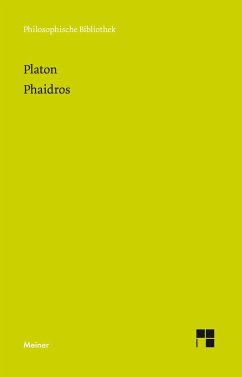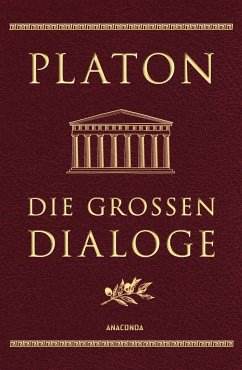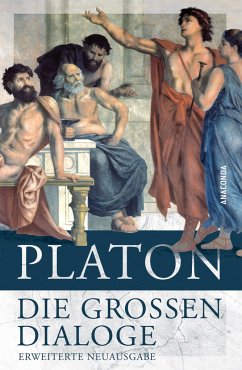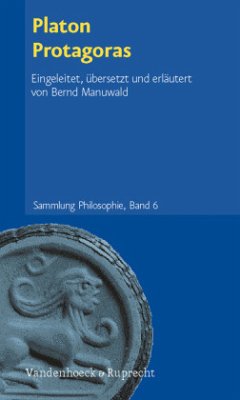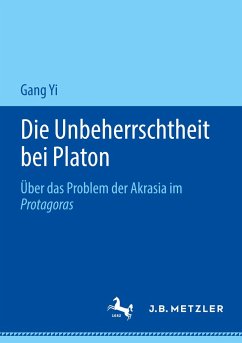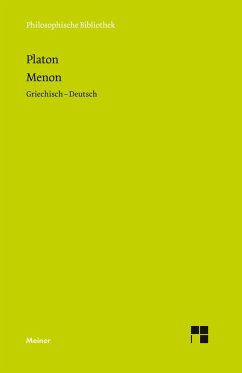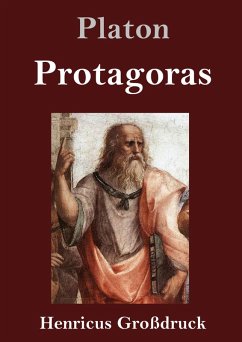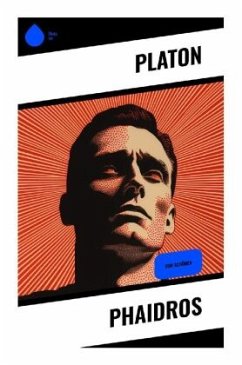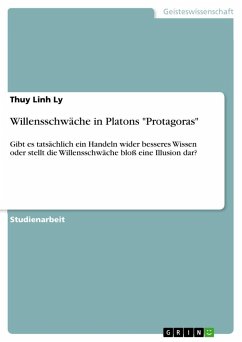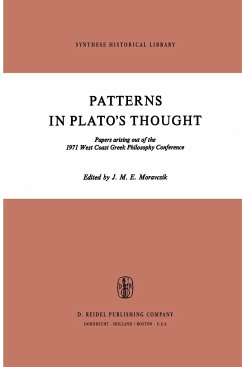
Plato's Protagoras
Essays on the Confrontation of Philosophy and Sophistry
Herausgegeben: Pettersson, Olof; Songe-Møller, Vigdis
Versandkostenfrei!
Versandfertig in 6-10 Tagen
83,99 €
inkl. MwSt.

PAYBACK Punkte
42 °P sammeln!
This book presents a thorough study and an up to date anthology of Plato's Protagoras. International authors' papers contribute to the task of understanding how Plato introduced and negotiated a new type of intellectual practice - called philosophy - and the strategies that this involved. They explore Plato's dialogue, looking at questions of how philosophy and sophistry relate, both on a methodological and on a thematic level.While many of the contributing authors argue for a sharp distinction between sophistry and philosophy, this is contested by others. Readers may consider the distinctions...
This book presents a thorough study and an up to date anthology of Plato's Protagoras. International authors' papers contribute to the task of understanding how Plato introduced and negotiated a new type of intellectual practice - called philosophy - and the strategies that this involved. They explore Plato's dialogue, looking at questions of how philosophy and sophistry relate, both on a methodological and on a thematic level.
While many of the contributing authors argue for a sharp distinction between sophistry and philosophy, this is contested by others. Readers may consider the distinctions between philosophy and traditional forms of poetry and sophistry through these papers. Questions for readers' attention include: To what extent is Socrates' preferred modeof discourse, and his short questions and answers, superior to Protagoras' method of sophistic teaching? And why does Plato make Socrates and Protagoras reverse positions as it comes to virtue and its teachability?
This book will appeal to graduates and researchers with an interest in the origins of philosophy, classical philosophy and historical philosophy.
While many of the contributing authors argue for a sharp distinction between sophistry and philosophy, this is contested by others. Readers may consider the distinctions between philosophy and traditional forms of poetry and sophistry through these papers. Questions for readers' attention include: To what extent is Socrates' preferred modeof discourse, and his short questions and answers, superior to Protagoras' method of sophistic teaching? And why does Plato make Socrates and Protagoras reverse positions as it comes to virtue and its teachability?
This book will appeal to graduates and researchers with an interest in the origins of philosophy, classical philosophy and historical philosophy.





